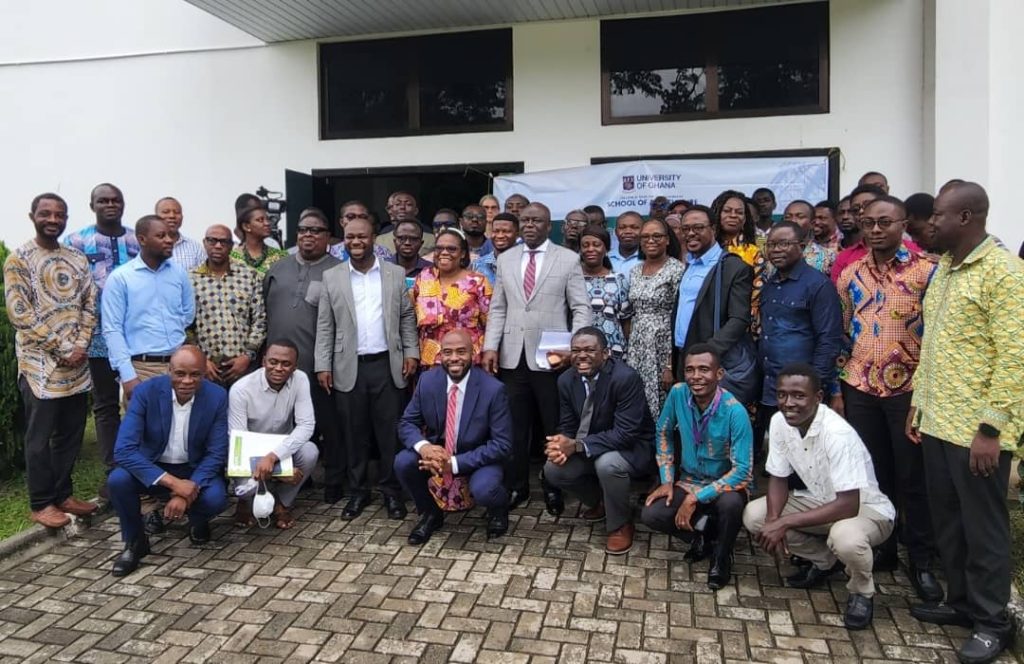Accra, Oct. 8, GNA- The Grain Quality Grading and Certification Project, which aims at improving the quality of grains, has been launched to enhance the cereal value chain development in the country.
The Project, a three-year initiative, is being implemented by the African Development Bank (AfDB) and the School of Agriculture of the University of Ghana and would seek collaboration from the Ghana Standards Authority (GSA), the Ghana Commodities Exchange (GCX), the Ghana Grains Council (GGC), and other institutions in the grain value chain.
The Korea-Africa Economic Cooperation Fund (KOAFEC) is providing financial support for the project with the project team composed of Dr. Francis Kemeze (AfDB), Dr. Herbert Ainembabazi (AfDB), Dr. Toba Omotilewa (AfDB), Prof. Irene S. Egyir (UG) and Dr. Charles Yaw Okyere (UG).
The Deputy Minister of Food and Agriculture, Mr. Yaw Frimpong Addo giving the opening remarks at the launch of the Project said there was the need to establish rules, quality grades and standards and certification in Ghana’s grain markets to govern and foster national and regional grain transaction and strengthen commodity exchange and food safety.
“It is in this light that we expect the grain quality grading and certification project to yield several positive results including the empowering of smallholders in market negotiations, allowing them to receive higher prices for higher quality grain, while encouraging the uptake of technologies that increase production and resilience of grain suitable for high-value processing and exportation,” Mr. Addo added.
The Deputy Minister revealed that the research team for the project would build capacity in Ghana, through extensive outreach aimed at a wide range of stakeholders including farmers, brokers, processors, the Ministry of Food and Agriculture (MoFA) and the GCX.
Such strong collaborations, he stressed, would go a long way to enhance grains quality testing and certification in the country to promote industrialization and value addition thereby reducing post-harvest loses.
The government, through the Ghana Standards Authority and other relevant stakeholders had developed various standards for some grains to promote proper grading and standardization and believed the project would increase the success rate in that direction.
A team member of the project, Dr Charles Yaw Okyere noted how lfood safety and quality was of important and must be taken seriously to protect consumers.
He expressed worry about the high levels of aflatoxins in many grains in various open markets across the country adding that, it was important for consumers to also demand for quality in terms of food safety and security.
“If you look at maize for instance we do not have much certification or grading, most grains in the open market, apart from the physical properties like weevils could show no other sign of contamination because there are other properties we cannot see with the naked eyes, an example is aflatoxins which could be very deadly.
Therefore with this project, we will be focused on helping farmers to improv the quality of grains to enhance their output and increase their revenue whiles ensuring consumer safety,” he added.
The project lead and Senior Research Economist at the AfDB, Dr. Francis H. Kemeze, said promoting grain quality across African markets was of paramount importance to the African Development Bank, hence the decision to invest in the project.

Africa, he said lost more than 600 million US dollars each year due to the high levels of aflatoxins in maize grown by farmers on the continent, adding that big processing companies who could buy grains like maize in large quantities from farmers turn to import instead, because they were forced by international regulations to meet certain standards.
Dr. Kemeze anticipated that once the quality of grain could be adequately and independently revealed to buyers, buyers would be willing to pay premium prices for the high quality grain.
Such premium will be the incentive that farmers need to increase their investments in pre-and post-harvest grain quality enhancement.
GNA